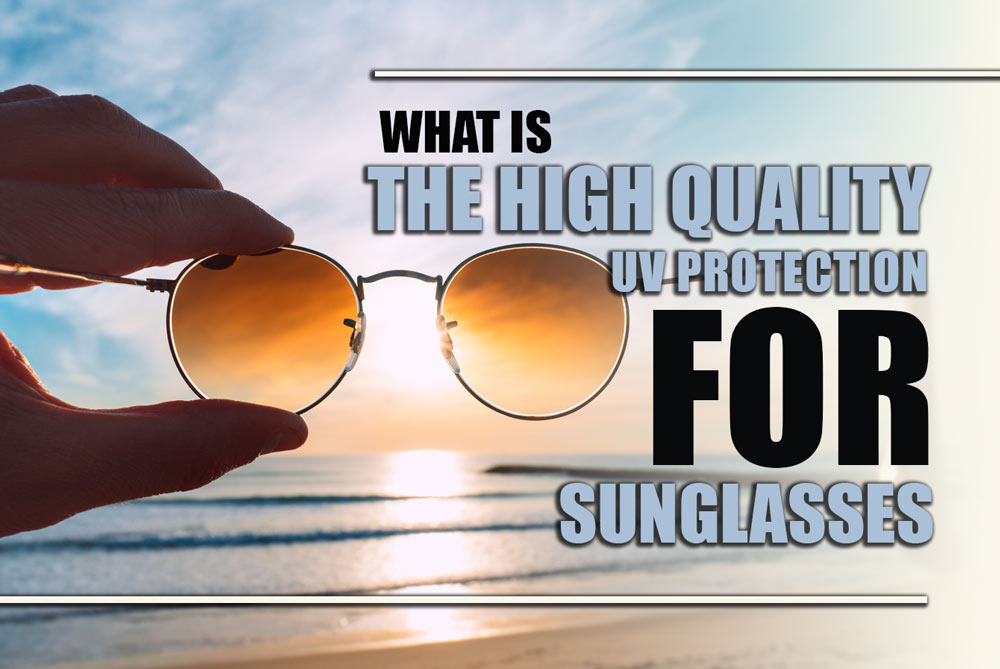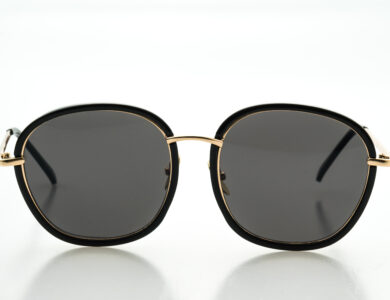
Imagine stepping onto a sandy beach, the sun shining brightly overhead. You reach into your bag and pull out your favorite pair of sunglasses to shield your eyes from the intense glare. But have you ever wondered how those polarized lenses work their magic?
In this article, we will delve into the fascinating world of polarized sunglasses and uncover the secrets behind their ability to eliminate glare and enhance visual clarity. Prepare to be amazed as we unravel the science that revolutionizes our sunny outdoor adventures!
1. What are polarized sunglasses?
Polarized sunglasses are special glasses that help our eyes when it’s sunny outside. Normally, sunlight moves in many different directions, and this can make our eyes tired or hurt them a little. But polarized sunglasses have a special filter that only lets light move in one direction.
Imagine you have a big bunch of straws in your hand, and you blow on them from all sides. The air will make the straws wiggle around and it might be hard to see through them. But if you put a net in front of the straws, only the air going straight through can pass, and it becomes easier to see what’s on the other side. That’s how polarized sunglasses work too! They only let sunlight coming from one direction reach our eyes, making everything clearer and protecting them from getting tired or hurt.
2. How do polarized sunglasses reduce glare?
Imagine you have a friend who loves to shine a flashlight in your eyes when you’re playing outside. It can be really annoying and make it hard to see, right? Well, sometimes the sun does something similar. It shines really bright light and reflects off shiny surfaces like water or the road.
Polarized sunglasses are like special glasses that have a superpower. They can block this annoying light from getting into your eyes. They have a magic filter that only lets certain light waves pass through.
This way, the glare from the sun gets blocked, and everything becomes much clearer and easier to see. So, polarized sunglasses help protect your eyes from bright lights just like how an umbrella protects you from raindrops!
3. The science behind polarization: light waves and filters
When the sunlight reaches your eyes, it’s like tiny waves of light coming towards you. These waves can go up and down or side to side. This is what we call polarization. It’s like when you jump in the water and make big splashes.
But sometimes, we want to see things differently, like wearing sunglasses that have special filters. These filters are like magical glasses that only let certain waves through. So if we put a filter on our glasses that only lets the up-and-down waves pass, it means we won’t see the side-to-side waves anymore! Our eyes will only catch the up-and-down ones.
Scientists use cool tools called polarizers to do something similar with light waves. They use special materials that only allow one direction of these light waves to pass through while blocking others. It helps them understand how light works and do amazing things with it!
4. Benefits of wearing polarized sunglasses
Wearing polarized sunglasses is highly beneficial for both our visual perception and ocular health, making it an essential practice for those looking to ensure optimal eye protection. The use of polarization filters in sunglasses helps to minimize glare, which occurs when light waves reflect off smooth surfaces such as water, snow, or glass.
This reduction in glare significantly enhances visual comfort and clarity while also improving contrast sensitivity. By selectively filtering out horizontally polarized light waves – the main cause of glare – polarized sunglasses greatly enhance color perception and depth perception. As a result, they enable us to have a more accurate and nuanced understanding of our surroundings.
Polarized sunglasses make your eyes safer by reducing the risks from bright light. When your eyes are exposed to too much brightness, like from the sun or reflections of water, they can get strained and you might have trouble seeing.
Polarized lenses protect your eyes by blocking harmful UV rays and reducing the amount of light that gets through. This helps prevent sunburn on your cornea and lowers the chances of getting cataracts later on.
5. Differentiating between polarized and non-polarized sunglasses
Polarized sunglasses are special because they can help us see clearly when it’s very bright outside. They have a special coating on them that acts like a filter. It blocks out the bright light that reflects off shiny surfaces, like water or car windows.
On the other hand, non-polarized sunglasses are like regular glasses. They can make things darker and protect our eyes from the sun, but they don’t have that special filter. So sometimes when we wear non-polarized sunglasses, we might still see some glare or reflections from shiny things.
To understand better, think of looking at a shiny mirror with both types of sunglasses on. With polarized ones, it will be easier to see your own reflection without any extra glare. But with non-polarized ones, you might still see some extra brightness or reflections around your face in the mirror.
6. Do all sunglasses have polarization?
Not all sunglasses have polarization, which is like having a special power! Polarization helps to block some of the bright light and glare from the sun. It’s like when you wear a superhero mask and it makes it easier for you to see things clearly without getting blinded by the sun.
Some sunglasses have this special power called polarization, but others don’t. So, if you want sunglasses that can really help protect your eyes from the sunlight, make sure they have polarization!
7. Limitations of polarized sunglasses
As you know just like how some phones or games can’t do everything, similarly polarized sunglasses also have limitations.
One limitation is that they may not work very well when we look at screens, like tablets or phones. It’s a bit like when we try to see something through a foggy window—it becomes hard to see clearly. Another limitation is that polarized sunglasses might make it difficult to see certain things, such as shiny objects on the ground or reflections in water. It’s similar to looking at a mirror where things can appear blurry or distorted.
So remember, while polarized sunglasses are great for protecting our eyes outside, they might not be the best choice when we want to use our tablets or when we need to look at shiny or reflective things up close.
8. How to choose the right pair of polarized sunglasses
Choosing the right pair of polarized sunglasses is like picking the best superhero shield to protect your eyes from bright sunlight. Just like how a superhero needs a strong shield to reflect harmful rays, polarized sunglasses have a special coating that blocks out the sun’s strong light.
Imagine you are looking at the shiny surface of a lake or pool. Sometimes, it can hurt your eyes because of the light bouncing off the water. Polarized sunglasses work like magic glasses that help you see clearly without squinting or hurting your eyes. They also make colors look more vivid and beautiful!
So, when you’re choosing sunglasses, find ones that say polarized on them to make sure they keep your eyes safe and comfortable in bright sunlight, just like a superhero’s shield would!
Conclusion
Imagine you are outside on a sunny day and everything looks really bright. Sometimes, the sunlight can be very strong and make our eyes feel uncomfortable. Polarized sunglasses are like special glasses that help protect our eyes from the strong sunlight.
When you look at a shiny mirror or water, it can create a bright reflection that hurts your eyes. Polarized sunglasses have a filter that blocks these glares. The filter only allows certain light waves to come through while blocking the rest.
So when we wear polarized sunglasses, they make everything look clearer and more comfortable for our eyes, especially when we’re outside in the sunshine.
FAQs:
Q: Can I wear polarized sunglasses indoors?
While it’s not necessary to wear polarized sunglasses indoors since there is typically no glare, you can still wear them if they provide additional comfort or style.
Q: Are all polarized lenses the same?
No, not all polarized lenses are created equal. The quality of the polarization can vary based on the manufacturing process and materials used. It’s essential to choose reputable brands for optimal performance.
Q: Are polarized sunglasses suitable for driving?
Absolutely! Polarized lenses help reduce glare from other vehicles and shiny surfaces, making driving safer and more comfortable.
Q: Can I use polarized sunglasses while using digital screens?
Yes, you can use polarized sunglasses with digital screens like smartphones or tablets without any issues. However, keep in mind that depending on the screen’s angle, you might experience some distortion or color changes.
Q: Are there any disadvantages to wearing polarized sunglasses?
The main disadvantage of wearing polarized sunglasses is that they may make it difficult to see certain LCD displays or LED screens clearly due to their anti-glare properties. However, this issue is generally minimal and applies mostly to specific professions or activities involving these types of screens.



